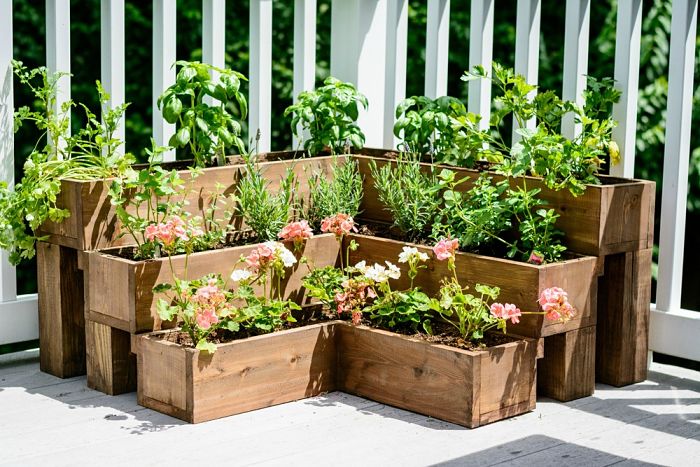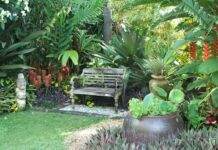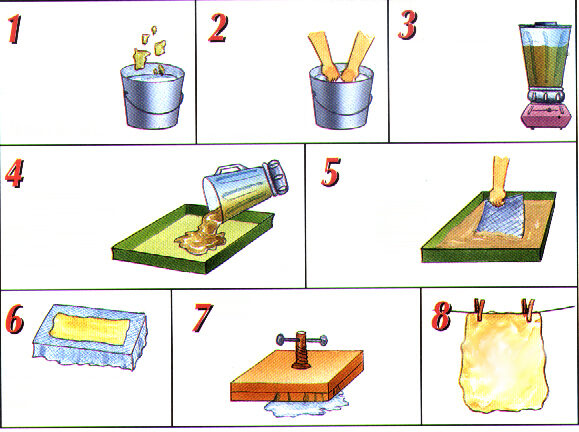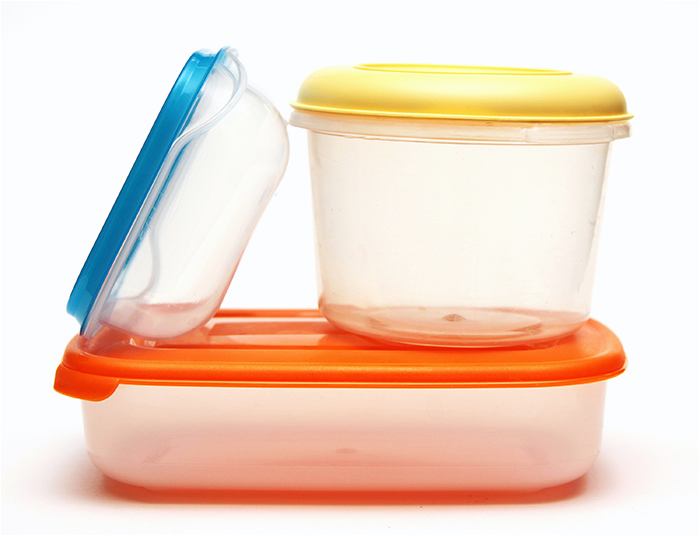When it comes to gardening, grass gardens seem to be one of a kind. With a wide variety of herbs that can be planted, some are more difficult to care for than others. But ultimately, there are many benefits to having an herb garden.
Common mistakes when caring for an herb garden
So, there’s no reason not to start your own herb garden, especially after you’ve prepared yourself with these tips and tricks that will help you avoid the 10 most common mistakes when caring for your herb garden.
1. Choose unhealthy herb plants
The chances of your herb garden thriving are decided when you buy the plant. It is best to look for healthy specimens, that have bright colors, a lot of foliage, and absolutely no insects or eggs in it. Finding an aphid means there are many more that you won’t be able to see, all waiting to invade your other herbs.
Have no sympathy for a sickly-looking weed, unless you have enough room to quarantine it outside of the main garden area while you reverse the damage. Spending your time and effort to repair an infested herb garden is a waste of time. Take a step ahead and look for the healthiest herbs you can buy.
2. Plant herbs in an unsuitable environment
It is important that you know what type of environment (sunny or shady, wet or dry) your grass needs before putting it in the ground. Planning to plant a rosemary, a plant that loves dry, chalky soil, in a damp, wet area? If so, your rosemary will die in about two weeks from moisture.
If you want to plant herbs in a shady area, look for herbs that don’t need as much sunlight. Sun-loving herbs will turn pale and weak due to not getting enough sunlight on a daily basis. If you don’t have an area that is too sunny or too shady, consider planting in pots that can be transported for optimal lighting.
3. Prune them infrequently
What makes an herb grow fast and neat is pruning. Of course, pruning an herb means that you are actually harvesting the great tasting leaves and stems. If you don’t prune it, only a few stems of the plant will grow and its leaves will age, dry out and fall off. This will result in the plant having long leafless stems.
By pruning you are also allowing the herbaceous plant to begin and end its life cycle. By harvesting regularly, you will keep the herb in its growing stage for as long as possible. This promotes stem and leaf growth and prevents flower formation.
It also keeps the herb producing for a longer period of time. Your herbaceous plants will look better and be healthier if you prune them on a regular schedule.
4. Incorrect or excessive planting
Many times, it happens that one buys more herbs than can be grown in one area. When shopping for your herb plants, read the plant labels that come with each pot. And pay close attention to the fully developed height and width of the plant. You always have the option of planting a fast-growing annual among the grasses if you don’t like the look of the mulch.
It is always better to transplant than to put the herbs too close together from the beginning. Over-planting is not only a waste of money, it also doesn’t allow your herbs to develop a healthy root system. One that will help them survive the winter and expand the following growing season.
5. Let the flowers turn into seeds
Herb plants grow beautiful flowers. Although many have edible flowers, it is not the best idea to allow the grass to flower early in the growing season. Once a plant blooms, this is the sign that its life cycle is about to end. Your herb grows a flower, then a seed, then dies for the season.
Therefore, it is best to prevent flowers from forming in the first place. When you see a flower starting to form, just remove the bud. If you find that the grass is persistent, cut below the flower or even the entire stem if necessary.
6. Spray chemicals on herbs
If you are used to turning to boxes and bottles of products when faced with fertilization and insect control, you better start thinking twice. Herbs, which are often rinsed and used fresh, should never be exposed to any treatment that could be potentially dangerous or toxic if ingested.
Even if a product is safe to apply around people and pets, be sure to also look up the words “grocery safe.” There are many ways to get ahead of problems that may necessitate the use of chemicals. Like weeding the plants regularly, keep a close eye on your herbs for insect attack and fertilize with a natural product like compost tea.
7. Overlook the small details
It is important to take a close look at herb gardens. Knowing what the plant looks like while it is healthy will allow the gardener to notice a problem when it first occurs.
Be on the lookout for damaged leaves and stems, and disturbance of the soil around your herbs. If you find that its leaves and stems are beginning to fade, brown, or curl, you will have caught the problem early enough to be able to save the plant.
8. Improper watering of the herb garden
Herb needs are minimal. Although they are easy to care for, they will provide you with plenty of freshness throughout the season but will require a proper watering schedule to stay stress-free.
Water your herbs early in the morning if possible. This way the water will penetrate further into the soil, and will prevent evaporation from being a problem. Always water the soil around the grass, never on the leaves. Doing this promotes mold and disease.
A good mulch is also a must for your herbs. Mulch keeps moisture in the soil and can extend the time between watering. However, don’t mulch next to the stem of an herb. With this you can be inviting insects and other invaders to make their homes.
9. Lack of protection
Although grasses are notoriously resistant to insect infestation and disease, these situations could still occur. Herb gardeners are often afraid to use any means to protect their plants, but it doesn’t have to be.
There are many organic and homemade ways to protect edible plants like herbs. Organic gardening takes place even before the plant is in place. Beneficial insects and good soil work together so you can have a chemical-free herb garden.
10. Forgetting your herb garden fertilizer
Once you have planted and grown your herbs, it is important to ensure that they continue to grow well with the use of a light fertilizer. Applying a compost tea once a week is very good to stimulate them.
Herbs are harvested multiple times during the growing season. This means that they will need additional energy to stay in their growth cycle for an extended period. When applying compost tea, water the soil and not the leaves. This is healthier for the plant and thus you will avoid any contamination of the edible leaves.
With these tips you will already know what mistakes you should avoid when caring for an herb garden and make it more productive.









